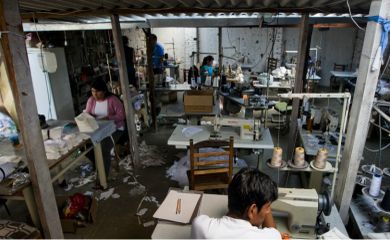Brazil top court justice revokes slave labor decree


Justice Rosa Weber of the Brazilian Supreme Court ruled the suspension of a decree by the Labor Ministry changing the definition of slave labor for the granting of unemployment insurance.

Justice Rosa Weber of the Brazilian Supreme Court ruled the suspension of a decree by the Labor Ministry changing the definition of slave labor for the granting of unemployment insurance.
Weber's decision comes as a response to a request filed last week by political party Rede, which claims that the law facilitates the violation of fundamental principles in the Constitution—among them those of human dignity, the social value of labor, and free enterprise.
By excessively narrowing down what an exhausting work day and slave-like working conditions entails, Weber argues, “the decree harms basic principles in the Constitution, fails to provide appropriate and sufficient protection to fundamental rights guaranteed by the Constitution and stands in dissonance with international commitments of supra-legal nature taken by Brazil which provided the basis for such rights.”
“The restricting definition found in the normative piece of legislation distances itself from the present understanding [of slave labor], endorsed by the country's criminal law, by international instruments signed by Brazil, and by this court,” the justice stated,
Rosa Weber ruled that the suspension should remain in effect until the case is studied definitively, which should be done by the full court. She is also rapporteur in two other cases against the decree.

In addition to adding to the definition of an exhausting word day the need for restraining one's freedom to come and go, the legislation increases the red tape in inspection
The case
A week ago, the Labor Ministry enacted a decree (Portaria 1.129 in the original Portuguese) on the definition of forced labor, what is meant by exhaustive work day and slave-like working conditions, aimed at regulating the granting of unemployment insurance to individuals rescued from such circumstances.
In addition to adding to the definition of an exhausting word day the need for restraining one's freedom to come and go, the legislation increases the red tape in inspection, and conditions the release of the so-called dirty list—with the names of employers found to force workers to slave-like conditions—to the approval of the Labor Ministry.
The new law was met with fierce criticism from such entities as the International Labor Organization (ILO), Brazil's Prosecutor-General's Office, and the National Council of the Rights of Children and Adolescents.
The Labor Ministry, charged with tackling the issue, released a note claiming the decree was legal, adding, however, that the decision is to be thoroughly observed. The ministry reiterated its commitment to “continue to improve efforts against slave labor in the country in order to rid workers of this plight, which assails human dignity.”
Translated by Fabrício Ferreira
Fonte: Brazil top court justice revokes slave labor decree




